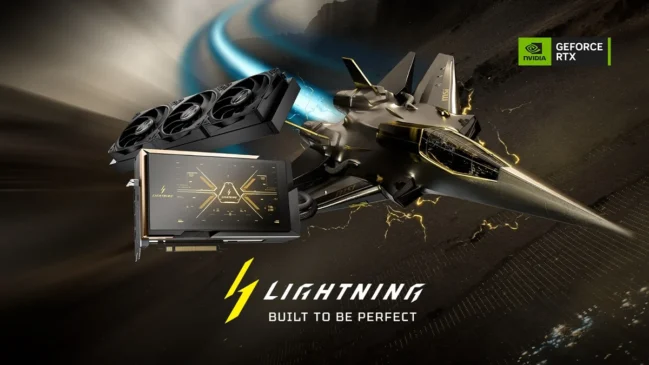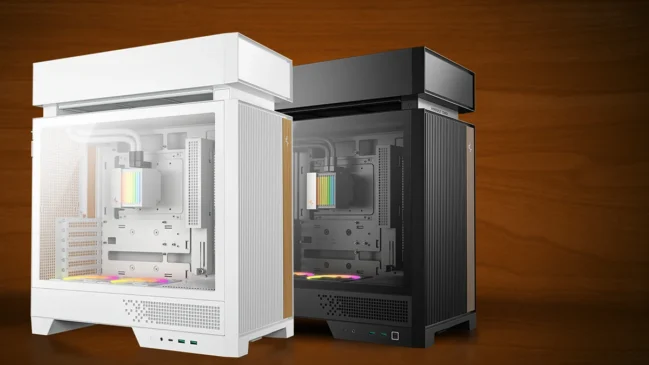
Sabrent has a vast portfolio when it comes to SSD’s. Today we find ourselves with another fast SSD in our hands.
Today we are checking out Sabrent’s 2TB Gen4 SSD, the Rocket 4.0 2TB courtesy Sabrent USA. As always with Sabrent, when you buy the SSD you get a host of goodies included in the package including a real good SSD management suite, a copy of Acronis and a few little tid bits.
Specifications
| Sabrent Rocket NVMe 4.0 500GB | Sabrent Rocket NVMe 4.0 1TB | Sabrent Rocket NVMe 4.0 2TB | |
|---|---|---|---|
| Capacity (User / Raw) | 500GB / 512GB | 1000GB / 1024GB | 2000GB / 2048GB |
| Form Factor | M.2 2280 | M.2 2280 | M.2 2280 |
| Interface / Protocol | PCIe 4.0 x4 / NVMe 1.3 | PCIe 4.0 x4 / NVMe 1.3 | PCIe 4.0 x4 / NVMe 1.3 |
| Controller | Phison E16 | Phison E16 | Phison E16 |
| DRAM | DDR4 | DDR4 | DDR4 |
| Memory | Kioxia 96L TLC | Kioxia 96L TLC | Kioxia 96L TLC |
| Sequential Read | 5,000 MBps | 5,000 MBps | 5,000 MBps |
| Sequential Write | 2,500 MBps | 4,400 MBps | 4,400 MBps |
| Random Read | 400,000 IOPS | 750,000 IOPS | 750,000 IOPS |
| Random Write | 550,000 IOPS | 750,000 IOPS | 750,000 IOPS |
| Security | N/A | N/A | N/A |
| Endurance (TBW) | 850 TB | 1,800 TB | 3,600 TB |
| Part Number | SB-ROCKET-NVMe4-500 | SB-ROCKET-NVMe4-1TB | SB-ROCKET-NVMe4-2TB |
| Warranty | 5-Years w/ Registration; 1-Year w/out | 5-Years w/ Registration; 1-Year w/out | 5-Years w/ Registration; 1-Year w/ou |
Close Look
Right out of the bat the Rocket NVMe 4.0 looks pretty darn fine with the black pcb and the copper label. The label doubles up as heatsink, however it was not enough for our sample of 2TB.

With the Rocket NVMe we have a double sided PCB with the Phison PS5016-E16 controller. Built on a 28nm process with dual Cortex A5, the E16 is similar to the E12. The difference lies in the inclusion of PCIe Gen4 PHY along with Phisons updated 4th Gen LDPC ECC engine. Supporting the controller we have two 1GB SK Hynix Chips for FTL Mapping for the 2TB Model. Rounding off the package we have thirty-two 512Gbit NAND dies across four NAND package all full of Kioxia’s BiCS4 96L TLC.
Testing System courtesy Tuktak Tech Community
Since we couldn’t arrange our PCI 4.0 based storage system in time, we asked our friends over at Tuktak Tech for help. They very graciously arranged a system for us and that has made this review possible. I would suggest to our readers to give them a visit and check out their work. They are a young bunch of guys working with technological content in the Bengali language which is rare, and they are very good at it.
| Test System | |
|---|---|
| Processor | Ryzen 9 3900X |
| Motherboard | AsRock B550 Steel Legend |
| Memory | 4x16GB 3600 MHz (16-19-19-39) Trident Z Neo (Dual Rank SK Hynix) |
| Graphics Card | Colorful iGame Geforce RTX 3060 TI Ultra OC |
| Storage | Sabrent Rocket 2TB courtesy Sabrent USA |
| Power Supply | Deepcool DQ850M-V2-L |
Performance Numbers
We ran the Rocket NVMe 4.0 through our usual gauntlet of benchmarks. The results are given below
Atto Disk Benchmark
The great thing about ATTO is that one can test with predefined block sizes. So, we can test with a 32MB sequence of 4KB files, yet also 32MB in 1MB files, providing an opportunity to test with various file sizes. This benchmark is preferred among manufacturers as ATTO uses RAW or compressible data and, for our benchmarks, we used a set length of 256mb and tested both the Read and Write performances for various transfer sizes ranging from 0.5 to 8192kb with a queue depth of 4.

Anvil’s Storage utilities Benchmark
Anvil Pro or Anvil’s Storage Utilities[Depending on what you’d want to call it] is an ‘all-inclusive’ storage utility that allows testing transfer speeds as well as IOPS and lets the user tweak and adjust to find just the right mix in their testing medium, the IOPS tests being fully configurable with preset testing scenarios for read, write and mixed IO. The Benchmarks menu includes an SSD test, Endurance Testing, and 3 pre-configured IOPS tests.

CRYSTAL DISK Benchmark
Crystal Disk Benchmark is used to measure Read and Write performances through sampling of highly compressible data (oFill/1Fill), or random data. Crystal Disk Mark scores usually drop a bit compared to ATTO, and this is the result of the test data now being primarily incompressible – Mostly movies, music, and photographs. We tested the drive with 1 GiB Sample.

AS SSD benchmark Suite
Last but not least is AS SSD Benchmark. This nice little German application gives an extensive result set. The test is popular, so I included it. AS SSD, for the most part, gives us the worst-case scenario in SSD transfer speeds because of its use of incompressible data.
Final Words
Sabrent has one of the most complete flash storage portfolio out there. The Rocket NVMe 4.0 released along side Ryzen 3000 launch and been at the forefront of sales since. Offering up some incredible performance with the Phison E16 controller, the SSD leaves up to its name and then some more. It is one of the fastest SSD we have tested so far.
Look wise, the SSD is pleasing to the eye with the black PCB and copper label. And if we take into account the heatsink (which is pretty bulky for the right reasons) the whole package looks pretty nice. We recommend equipping the motherboards inbuilt heatsink or the one coming with the package if you want to use this for sustained Profesional workloads.

Overall, we couldn’t find a legit Con with SSD even if we tried. Barring the Heat buildup(which can be managed easily), the SSD wins in every front.
Check out the video review from Tuktak Tech : Youtube
A silver from TechARX










